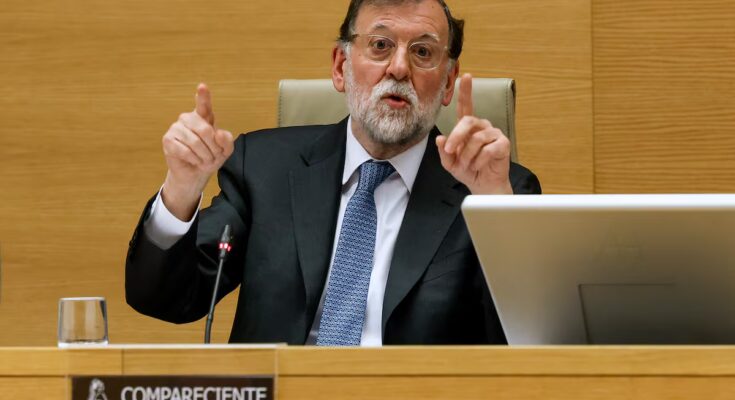“The secrets and human foundations of political wisdom”, announces the cover of the book, between the name of its author – Mariano Rajoy – and the title: The art of governing. The former president explains that this title was chosen by the editor, former PP minister Manuel Pimentel. And what at first glance seems to paraphrase the classic The art of war finds full confirmation in the internal pages: Rajoy, in the style of Sun Tzu, reels off aphorisms and brief reflections on that art of good government which, according to Pimentel, “includes the subtleties of the human soul”. A Rajoy who is less ironic and more philosophical than usual, without abandoning his sententious style, between the profound and the obvious, to meditate on the profession to which he dedicated his life.
The book that Almuzara has just published, just 120 pages of concise fragments, can be understood as a vindication of politics against those who work to discredit it. From traditional politics, to be more precise. In a moment of clear contamination by ultra discourses, Rajoy clings forever to the model of the right. He praises the value of Parliament and the great political consensus, fights populism and the reckless din of social networks, reiterates the European profession of faith, proclaims the validity of parties, says that the fight against the revolving doors has gone too far, warns that politics often consists of “choosing the least bad”…
The former president seems to be the conservative we have always known, that man who prides himself on being predictable. He proudly displays his traditionalism. “Yes, I am an avowed defender of bipartisanship,” he proclaims. “It is advisable that there are no more than two political parties, not too distant from each other in their postulates. This gives stability and trust. Multi-partyism generates uncertainty.” In the same way that he repudiates inclusive language, he praises the Monarchy and still sees no time in touching the Constitution, even though it “may not be perfect or provide the remedies for all our ills”.
With that certain aura of oriental wisdom with which he is presented, Rajoy bestows very little irony, apart from a flash: “Don’t praise yourself. Let others do it”. Other times humor is put at the service of a man who seems to want to consider himself old-fashioned: “The wardrobe problems encountered in some Parliaments are worrying.”
The most hardened Marianism overflows in a section of advice to young politicians. There the new oriental touch and the old catechism merge in a celebration of apologia for passivity: “Sometimes not making a decision is a way of making it”, “be careful of those in a hurry, sometimes it is urgent to wait”, “if you don’t know where to go, stay where you are”… The apothegms range from ingenious puns (“Politics needs people who don’t need politics”) to obvious truths presented as revelations (“Without good policies there can be no good consequences”)
The book does not contain very direct allusions to current events. It includes reflections that undoubtedly concern her, such as when she postulates that a government rejected by the Budget should call elections. Rajoy’s allergy to the politics of historical memory, which hibernated during his period in power, admits of no doubt: “Revising history as has been done in recent years goes against the spirit of the Constitution and against coexistence between Spaniards.”
Other notes, less explicit in their references, clash with the current action of his party. While the PP has taken the immigration banner as an essential part of its speech, the former president states: “We politicians should talk little about immigration.” Even the everyday shrieks of the popular people have little sympathy for Rajoy’s complaints against “anger, filth, exaggeration.” The same thing happens when we talk about corruption, something that affects us very closely. “Whoever accuses must prove,” says the former president. And it abounds: “No one can boast of being incorruptible and transform his rival into a completely corrupt person.”
Between advice and reflections, self-criticism goes out the window. We find only hints of rectification. He acknowledges that the government has failed to deliver on its election manifesto by raising taxes or implementing cuts. And he justifies it: “Many times I have had to take back my own words, not for political convenience, but because reality required it.”
Unlike Felipe González and José María Aznar, who never completely abandoned the public scene, Rajoy has done very little since his retirement. “In politics it is very important to realize when you are staying and act accordingly,” he writes. “It is appropriate, when necessary, to resign oneself to retirement.”


